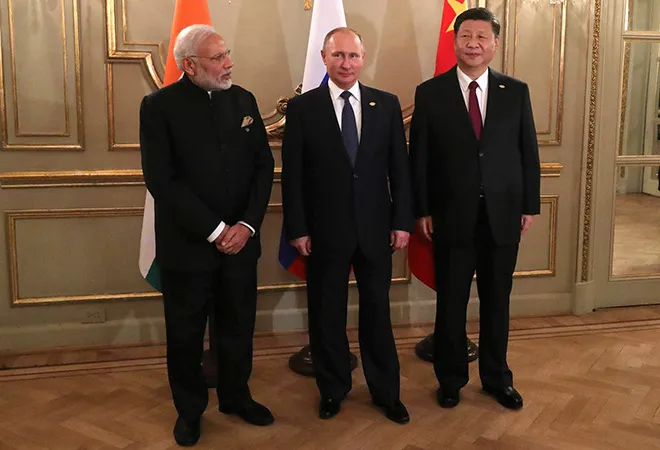
Trump’s Russia Sanctions Could Backfire, Paving Way for RIC Alliance
The implications of Donald Trump imposing full sanctions on Russia have stirred significant debate. Critics warn that such an approach might intensify tensions and lead to unintended consequences, including the potential formation of a bloc known as RIC (Russia, India, China).
Implementing complete sanctions could present political challenges for Trump, as it may come across as a concession that threatens to weaken U.S. influence on the global stage. Some analysts believe that retaining specific restrictions could be beneficial as bargaining chips in future negotiations.
There are also concerns about the risk of escalation if additional sanctions are imposed. Lawmakers, including Marco Rubio, have indicated that further sanctions might prolong the conflict between Russia and Ukraine, highlighting the necessity for a more diplomatic approach to foster peace.
Moreover, strict sanctions could inadvertently push Russia closer to key nations like India and China, creating a new geopolitical alliance that poses challenges to U.S. interests. This scenario emphasizes the emergence of RIC, which could significantly alter the balance of power in international relations.
The historical context of U.S.-Russia relations suggests that a more cooperative posture may yield preferable outcomes over isolationist tactics. Critics of Trump's past approaches argue that engagement could be more effective in navigating the complex dynamics of international relations than confrontation.
In conclusion, while the aim behind sanctions may be to hold Russia accountable, the broader implications could lead to a reconfiguration of global alliances, potentially escalating conflicts rather than bringing about resolution. For further insights, visit Council on Foreign Relations.
81 Lawmakers Support Comprehensive Sanctions Against Russia and Oil Buyers
A substantial number of lawmakers, specifically 81 cosponsors in the U.S. Senate, are rallying for the implementation of comprehensive sanctions against Russia. This initiative comes amid escalating geopolitical tensions, especially following a phone call between former President Trump and Russian President Vladimir Putin, which failed to yield significant progress on the ongoing Russia-Ukraine conflict.
The proposed sanctions focus on multiple fronts, particularly targeting those who engage in oil and gas purchases from Russia. By imposing restrictions on entities that buy oil and gas from Russia, lawmakers aim to weaken the financial resources that sustain the Kremlin's military actions in Ukraine. This approach highlights the critical need to address the economic foundations supporting the Russian government.
Moreover, the sanctions legislation is crafted to impact various sectors, with a special emphasis on energy, which is a primary revenue source for Russia. By holding companies that deal in oil and gas accountable, the legislation intends to exert considerable economic pressure on both the Russian government and its affiliates. The growing momentum for these sanctions not only indicates broad support but also reflects a serious and unified political will to respond decisively against Russia and its allies.
This legislative endeavor showcases a remarkable bipartisan consensus, with lawmakers uniting for a common purpose. The collective push for full sanctions against Russia, particularly against those engaging in energy transactions, underscores a legislative commitment to international security and economic stability. The call for robust measures against Russia signifies a pivotal moment in U.S. foreign policy as lawmakers seek to influence the ongoing conflict and safeguard global interests. For more on this topic, visit Council on Foreign Relations.
